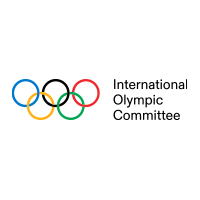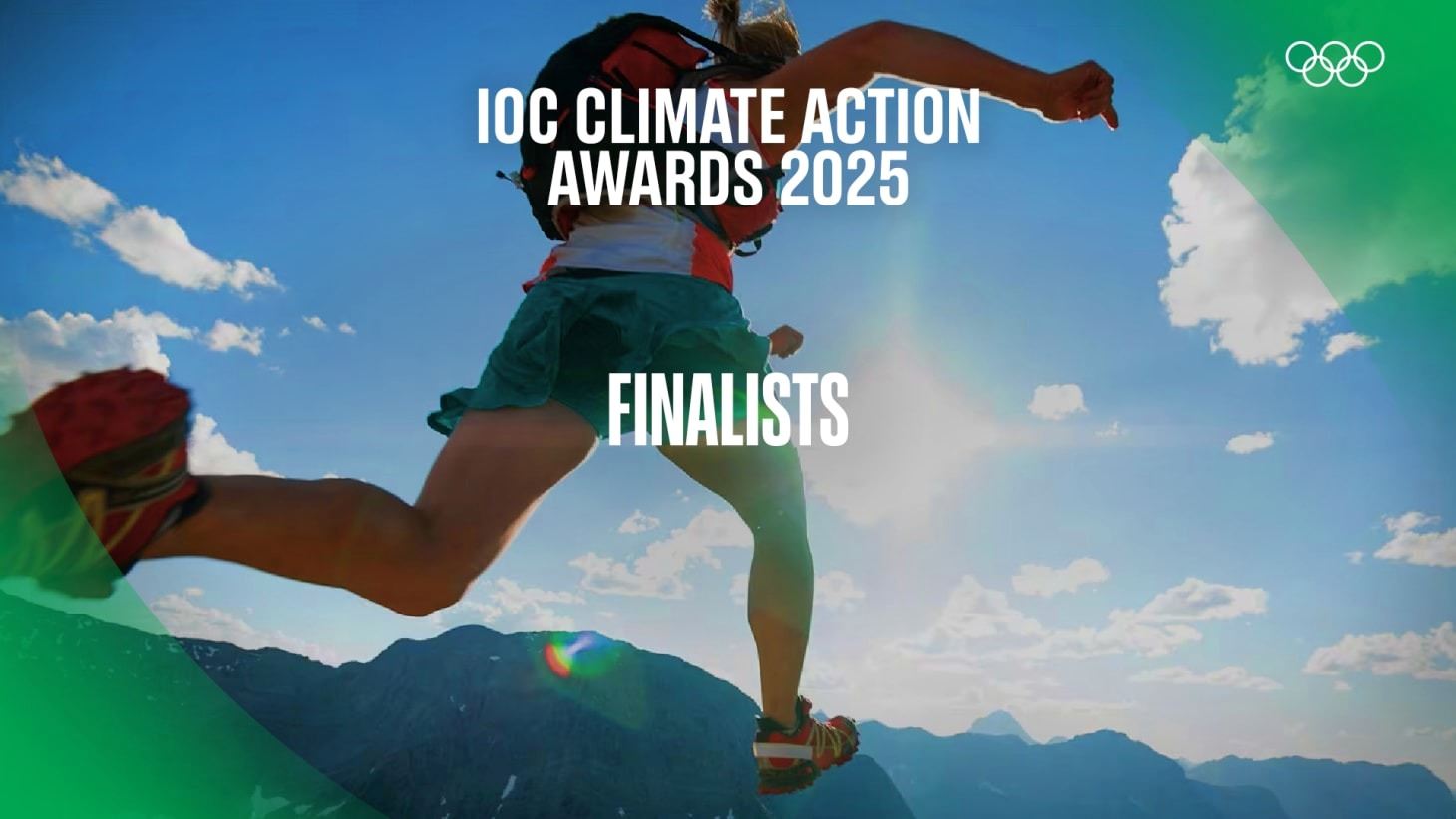06 November 2025 – The International Olympic Committee (IOC) has announced the 15 finalists for the IOC Climate Action Awards 2025. The awards celebrate innovative projects across the Olympic Movement that are taking tangible steps towards tackling climate change and driving sustainability in sport. The winners will be announced in the run up to the Milano Cortina 2026 Olympic Winter Games.
Key Facts
- The IOC Climate Action Awards 2025 celebrate impactful initiatives that address climate change across the Olympic Movement.
- 15 finalists were selected across three categories: Athletes, National Olympic Committees (NOCs) and International Federations (IFs).
- The winners will be announced in the run up to the Milano Cortina 2026 Olympic Winter Games.
The list of 15 finalists is made up of five representatives from each of the following categories: Olympic and Paralympic athletes, National Olympic Committees (NOCs) and International Federations (IFs). The awards recognise and reward initiatives that deliver measurable impact in reducing the environmental impact of sport while inspiring and educating others to take meaningful climate action.
“As the impacts of climate change touch every corner of the world, sport has a unique power to inspire collaboration and mobilise action,” said Marie Sallois, the IOC’s Corporate and Sustainable Development Director. “We are thrilled to see the momentum generated by the IOC Climate Action Awards – which are now in their third year – and by the growing level of engagement across the Olympic Movement. The quality of this year’s projects truly reflects our commitment to creating a more sustainable future – not only for sport, but for society as a whole.”
The awards are supported by Worldwide Olympic and Paralympic Partner Deloitte, Jennifer Steinmann, Deloitte Global Sustainability Business Leader, said: “Sustainability is a catalyst for innovation, and in recognising this year’s finalists, we see how these creative and data-driven initiatives can lead to new opportunities for sports organisations to evolve and build resilience. Deloitte is proud to once again support the IOC Climate Action Awards and to help scale solutions that have the potential to make lasting impact, both within and beyond the Olympic Movement.”
This year’s finalists are:
In the athlete category
Rhydian Cowley, Athletics, Australia – Rhydian advocates for climate action by supporting the development of climate action plans with national sports organisations, including Athletics Australia, the State Institute of Sport and the Victorian Institute of Sport, contributing to reductions in emissions and plastic use. His work has been recognised with awards such as the BBC Green Sports Award (2024) and the IOC P&G Athletes for Good Grant (2023).
Hugo Inglis, Hockey, New Zealand – Hugo is a co-founder of “High Impact Athletes” (HIA), a movement that directs athlete funding towards evidence-based, systemic climate solutions. HIA supports organisations that advance the technologies and policies needed to decarbonise the sectors most responsible for sport’s emissions – aviation, energy and infrastructure. To date, HIA has mobilised over 240 athletes to channel more than USD 2 million to carefully selected charities, driving meaningful, positive change in global health, animal welfare and climate action.
Oliver Scholfield, Hockey, Canada – Oliver co-founded “Racing to Zero”, a non-profit sustainability consultancy that supports sports organisations and events in understanding and reducing their environmental impact. The consultancy measures greenhouse gas emissions, provides tracking tools, and delivers tailored solutions such as sustainability strategies and emission reduction plans. It has worked with organisations and events such as Canada Artistic Swimming, Cycling Canada, Freestyle Canada and the Canada Games.
Gabrielle Smith, Rowing, Canada – Gabrielle leads the “Rising Tides” project, which focuses on improving water quality and cleaning Canada’s waterways. Since 2024, the project has removed 335 kilograms of underwater waste and secured more than CAD 15,000 in grant funding. In addition to this, in partnership with the Shaw Centre for the Salish Sea, Gabrielle supports accessibility for visually impaired children from low-income communities and has funded educational field trips for 200 students.
Kevin Wekesa, Rugby Sevens, Kenya – Kevin promotes eco-conscious behaviour in sport through “Play Green”. By providing aluminium bottles to the men’s and women’s national teams, Play Green cuts down on about 144 single-use plastic bottles each training session, saving nearly 1,000 bottles every week. Additionally, Kevin has collaborated with 40 schools to date in Kenya, providing mentorship and workshops on sustainability in sport. Through this programme, children have put their climate education into action and helped to plant 2,300 trees.
In the NOC category
British Olympic Association (BOA) – The BOA is working to reduce emissions by 50% by 2030 through measures such as the use of sustainable transport options, including trains and hybrid and electric vehicles. The strategy has already delivered an 85% reduction in the BOA’s Games-time footprint for Paris 2024 and a 37% decrease in freight volume since Tokyo 2020.
NOC of Cabo Verde – Through its “Olympic Sea” project, the NOC is leading efforts to reforest, conserve and restore local ecosystems in Cabo Verde. The initiative, currently focused on the maintenance and rehabilitation of two coastal shrub forests and two seagrass meadows on Santiago Island, engages various sports and community actors in nature regeneration, using sport as a tool for climate mitigation and resilience.
NOC of Colombia (COC) – The COC reaffirms its commitment to sustainability by incorporating climate action into the planning and delivery of sporting events, training and community engagement. It promotes environmental awareness and training, and supports initiatives to reduce carbon footprints. Between 2022 and 2025, the COC achieved a 60% reduction in carbon emissions at the 2025 Ladrilleros Triathlon, and helped collect 32 tonnes of waste through the Tierra Bomba project.
NOC of Spain (COE) – In line with the 2030 Agenda for Sustainable Development, the COE has developed a model to integrate the UN Sustainable Development Goals into its operations, achieving a 27% reduction in emissions through measures in energy efficiency, waste reduction and sustainable mobility. Expanding this impact across Spain’s Olympic movement, the COE launched the "Sustainable Sports Seal" project, a certification system that has so far awarded 11 sporting events and seven sports organisations for measurable progress in environmental, social and economic sustainability.
NOC of the Netherlands (NOC*NSF) – Through its “Sustainable Mobility” initiative, the NOC prioritises carbon emission reductions. The largest impact is achieved by promoting train travel and cycling through the launch of Shuttel, a platform that combines public transport, shared mobility, cycling and electric vehicle (EV) charging with a data-driven approach. Central to its impact is the electrification of Team NL’s fleet, with 65% immediately converted to EVs – a transition that has already delivered a 40% reduction in CO₂ emissions and is on track to reach 100% transformation by early 2027. At Paris 2024, the NOC*NSF’s sustainability action plan also reduced the footprint of participants’ kits by more than 70% compared to Tokyo 2020, through the use of more sustainable clothing options.
In the IF category
International Biathlon Union (IBU) – As the first Winter Federation to include World Cups and World Championships in its transition plan, the IBU achieved a 6% reduction in direct and indirect emissions across all three scopes of the GHG Protocol in 2024. It is driving systemic change by supporting national federations to develop sustainability strategies, calculate CO₂ footprints, and educate key stakeholders. Through its collaboration with brands in the Winter Sports Network, the IBU is also developing joint athlete-brand climate advocacy projects, with plans to scale globally in 2026. Through its “Athlete Ambassador Programme”, the IBU has empowered 26 athletes from 17 countries to champion sustainability. Its Biathlon Climate Challenge mobilised 12,000 fans to engage in climate action through physical activity.
International Ski and Snowboard Federation (FIS) – FIS developed its CO₂ calculator, a free tool designed for national ski associations and local organising committees to measure, manage and reduce greenhouse gas emissions. It enables event organisers to assess emissions not only retrospectively, but also during the planning phase, supporting more sustainable decision-making from the outset. At the Nordic World Ski Championships, the tool guided strategies like using wood-chip heating, with hydrotreated vegetable oil (HVO) as a backup, reducing heating-related emissions by 96.6%. Overall, FIS’s footprint, as an organisation, dropped by 7.5% from 2023 to 2024.
International Table Tennis Federation (ITTF) – Through its “Sustainability Education Platform”, the ITTF reinforces and complements its broader sustainability strategy. The platform serves as a catalyst for behavioural change and embeds sustainability within the organisation’s governance priorities. Within three weeks of the platform’s launch, 146 individuals from 56 countries had received training, engaging in interactive, gamified, scenario-based modules. Those who fully complete the modules earn an official ITTF sustainability certificate.
World Sailing – Using its emissions-tracking tool, World Sailing monitored 285 support vessels at Paris 2024, identifying a potential 20% reduction in emissions and fuel consumption. It has also set technical standards to reduce the impact of boat manufacturing and propulsion, and created eco-piloting programmes to spread best practices across sailing.
World Triathlon – Through its “Sustainable Event Certification”, the organisation provided event organisers with an emissions reporting tool to reduce the environmental impact of triathlon events, and is mandating sustainable practices in bid documents for World Triathlon events starting in 2025, with 20 events already incorporating mandatory sustainability requirements.
For more information about the IOC Climate Action Awards, click here.
Learn more about Worldwide Olympic and Paralympic Partner Deloitte, the supporter of the awards.
To find out more about the IOC’s work on climate action, click here.

